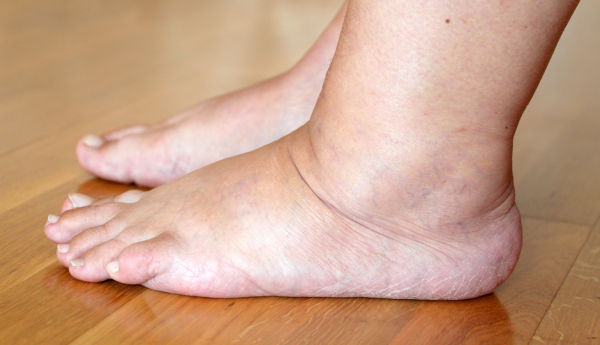

Water retention, also known as oedema, refers to the buildup of excess fluids in the tissues and cavities of the body’s circulatory system. It often results in swelling in areas such as the legs, ankles, feet, and hands. This condition commonly occurs in women during pregnancy or before menstruation.
This article explores the primary causes of water retention in the body. While it frequently affects pregnant women or those with hormonal fluctuations, it can also occur in individuals who are physically inactive, bedridden for extended periods, or taking certain long-term medications.
In some cases, water retention may be a symptom of more serious health issues like heart failure or kidney disease. Understanding the causes of water retention is crucial, as early awareness can help manage or prevent the condition effectively.
Below are some of the major reasons why water retention occurs:
# Excessive Sodium Intake:
Consuming foods high in sodium without adequate water intake can cause the body to retain fluids. When sodium levels rise, the body holds onto water to maintain balance, causing cells to swell significantly.
# Magnesium Deficiency:
A lack of magnesium—an essential mineral involved in numerous bodily functions—can contribute to water retention.
# Vitamin B6 Deficiency:
Vitamin B6 plays a key role in maintaining the body’s fluid balance. Studies have shown that women experiencing premenstrual syndrome (PMS) saw improvements when they consumed foods rich in Vitamin B6.
# Dehydration:
Inadequate water consumption can paradoxically lead to water retention. When the body doesn’t receive enough fluids, it enters a survival mode, storing water to prevent dehydration.
# Poor Circulation in Leg Veins:
Weak blood circulation, particularly in the veins of the legs, is a common cause of swelling in the lower limbs and ankles. This condition often occurs during pregnancy.
# Premenstrual Water Retention:
Hormonal fluctuations during the menstrual cycle can trigger fluid retention. Poor dietary habits and nutritional deficiencies may further aggravate the problem.
# Low-Calorie Diet:
Extremely low-calorie diets can promote water retention due to insufficient protein levels in the blood. Protein helps draw excess water out of the tissues, and its lack may lead to swelling.
# Heart or Kidney Problems:
Chronic conditions such as heart or kidney disease can result in persistent swelling in the legs and ankles. These symptoms require immediate medical attention.
-
Over 7,000 Truck Drivers Taken Off US Roads For Failing English Tests, Indian Drivers Hit Hard

-
M11 traffic LIVE: Huge 45-minute delays on UK motorway after police rush to crash

-
Mikel Arteta reveals concerning Viktor Gyokeres injury update ahead of key Arsenal fixture run

-
Huge machete brawl breaks out between kids in Manchester as armed police swarm street

-
University of Virginia active shooter LIVE: Police urge students to 'run, hide, fight'
